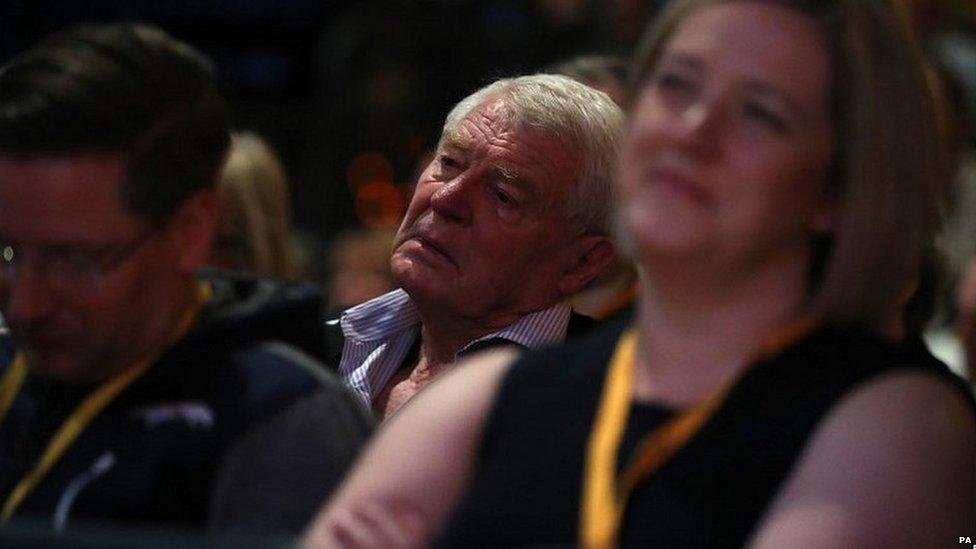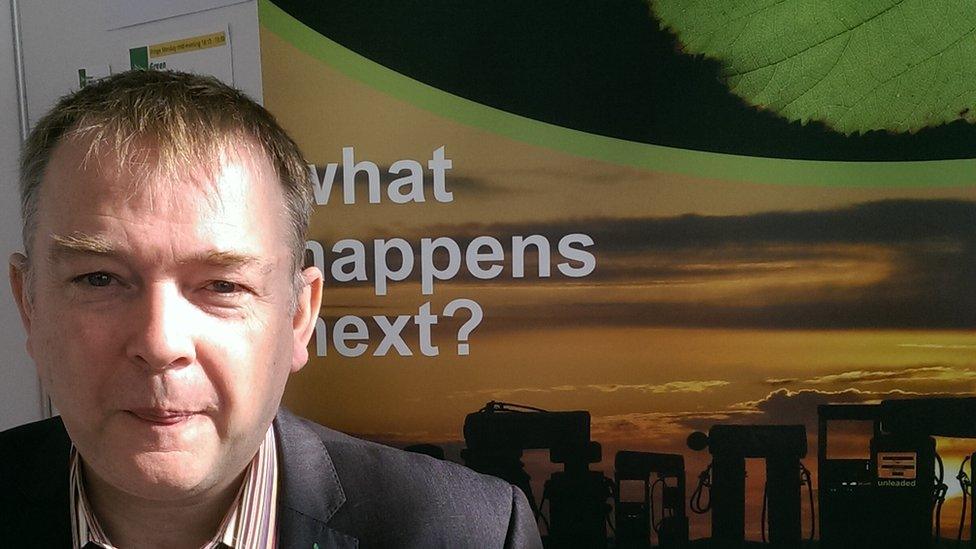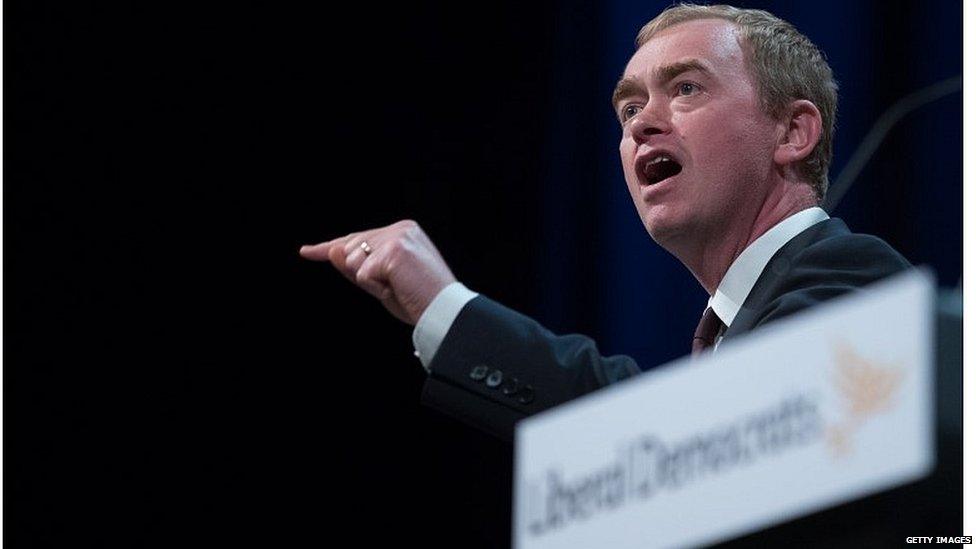Is more radicalism the answer for the Lib Dems?
- Published

One of the party's former leaders wants to see "dangerous ideas" to the fore
It is more than two years since their much-criticised alliance with the Conservatives came to an end.
But there are those who worry the Liberal Democrats are still in something of a post-coalition haze, to coin a phrase having "lost a (ministerial) empire but not yet found a role".
The Brexit vote has, of course, given the party fresh impetus and, with membership numbers rising above 100,000, there is no shortage of new blood at this conference.
Tim Farron's speech - a very personal reflection on how the Lib Dems clawed their way back from the brink of extinction in 2015 under his leadership - was meant to show this is a party with plenty of life in it.
While it would be unusual to expect new policies so soon after an election and with a new leader feeling his way, the conference, so far, has hardly been teeming with new ideas, a state of affairs which led one ex-leader to bemoan the shortage of new thinking and the ceding of big ideas to the left and right of the political spectrum.
Paddy Ashdown's critique of the party in the run-up to the conference and appeal for a "ferment of debate" may have touched a nerve, as it was designed to do, but there are many activists who broadly agree with him.
"We made compromises and we became compromised," says Graham Neale, chair of the Green Liberal Democrats, of his party's five years in government.
"15 years ago we were seen as the green party and synonymous with that. Since coalition we seem to have lost our way."
Others are more forgiving of the sacrifices the party had to make in government, when it was hugely outnumbered but still often managed to punch above its weight, and believe its leaders have learnt lessons.
Mick Clark, a member from Yeovil, says one of the party's abiding strengths is its willingness to look itself in the mirror.
"Looking at the coalition era, there were positives and negatives. Any party that does not learn from its own mistakes and those of others is deemed to failure."
'Bold centrism'
He believes it would be a mistake for the Lib Dems to now follow the Conservatives and Labour down the route of what he describes as "emotionally-led" politics.
"Everybody loves hope but when it is false hope it is misleading," he says. "As a party we do need to be bold, to remain true to our beliefs. To say you are a bold centrist may sound something like an oxymoron, to say the middle ground is an adventurous place but we are the party of common sense policies."
A recurring theme talking to new members, particularly those who previously supported the Tories, is distaste about cuts to welfare budgets in the past two years and a desire for the Lib Dems to push back harder on issues ranging from housing benefit to disability living allowances.
"Liberal values and the way the world is moving require us to take a more radical view," says Michelle Booth, who joined the party last year and wants the leadership to focus on the most vulnerable in society.

The Lib Dems should be the champions of a zero-carbon Britain, environmentalists argue
"It is all very well saying centrist moderate but to get to where we want to be and where we need to be, we do need to be a bit more radical and stand up for what counts."
The environment, both in terms of promoting clean energy and protecting biodiversity, is another priority for many.
The Green Liberal Democrats are using the conference to launch a fully-costed plan for a zero-carbon Britain by 2050 which they claim goes well beyond what anyone else is envisaging, including the Greens.
"It means we are going to be more than credible on the environment," says Graham Neale. "We have to be radical and find ideas that we can introduce into the mainstream."
While excited about the pace of technological change in the renewable sector, he is worried about the Lib Dems' continued support for nuclear power, in particular the "flawed" building of a new multi-billion reactor at Hinkley Point.
"It is so difficult to tie us in to a horizon for more than 20 years. You saw last week that the strike price of wind is falling like a stone. I can see why we need energy security but things are changing so quickly."
'Open wounds'
Talk to any Lib Dem about the process of revitalisation and it is hard to escape the shadow of student tuition fees and the impact that U-turn had on young voters - who flocked in their droves to Jeremy Corbyn at the election.
One young party member, from Wantage, in Oxfordshire, is hopeful that Labour will eventually let down young voters over Brexit and other issues but he says the party's tuition fees issue does need to be "put to bed".
"There is definitely a need to keep acknowledging that wounds were opened through the decisions at the start of coalition which were politically necessary but were badly handled," he says.
"But it is not a matter of apologising for ever. Explain and be done and come out with something strong and new."

Tim Farron said the party had been vindicated time and time again over the years
It is hoped the emergence of a new, younger generation of MPs at the election, and the return of figures like Jo Swinson will broaden the party's appeal, as will its bottom-up, inclusive tradition of policy-making.
"Even though nationally the party might be struggling, you do see a lot of young people coming to conference because they want to be involved in shaping the offer that the party will make," says one member.
"That is important for young folk. In this generation that we can all tap on our phones and contribute to thinking, a party which says this is your policy arena, you can get involved is really important.
"It is that next generational message, the idea that we are not going to be fighting for political short-termism which is really special about the Lib Dems."